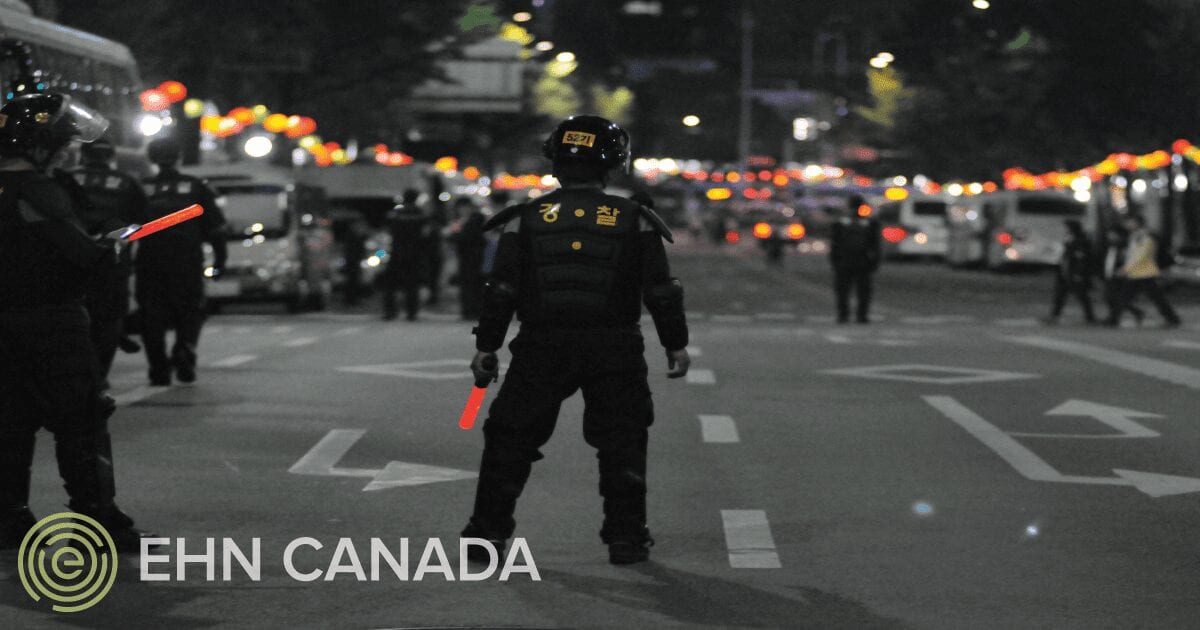Canadian police officers are disproportionately affected by mental health disorders according to several studies done by CAMH. As a result, the conversation around law-enforcement and mental health disorders is at an all-time high. In the era of social media, we get to see firsthand the interactions between the general public and police, and some of the traumatic situations in which first responders often find themselves. Questions about mental health and the impacts of high-risk occupations are becoming common discussion topics. The number of police officers across Canada who are taking long-term sick leave due to stress or other mental health disorders such as post traumatic stress disorder (PTSD) is rising. These disorders can cause individuals to feel helpless, listless, and suicidal, with a wide range of symptoms that touch every aspect of a person’s life. As a result of frequent exposure to traumatic experiences, many individuals working in law enforcement struggle with PTSD, which often goes undetected and untreated.
What is Post-Traumatic Stress Disorder?
Post-traumatic stress disorder (PTSD) results from exposure to traumatic events that involve harm, or the threat of harm, to an individual or to someone else. Police officers with PTSD are often unable to function normally and perform their duties at work. PTSD symptoms are usually grouped into four categories:
- Intrusive memories
- Avoidance of triggering situations and emotions
- Negative changes in thinking and mood
- Changes in physical and emotional reactions
The average person working a typical 9-to-5 job encounters some level of stress whether it be submitting a report by a particular deadline, or dealing with a difficult customer—but it is nothing like responding to a domestic violence call and watching the victim die; or responding to a house fire on Christmas and watching firefighters pull the charred remains of a young child from a burning building. These traumatic events imprint themselves on the psyche of the individual witnessing them, and they may develop a visceral reaction to triggering situations that remind them of the traumatic event.
Police Culture and Mental Health Disorders
Post-traumatic stress disorder (PTSD) symptoms in police officers may often appear many years into the job. Many police officers can go decades without developing any kind of negative emotional, psychological, or physiological reaction to the traumas that they experience or witness. Despite knowledge of the rising rates of suicide, depression, and PTSD among police officers, many do not immediately seek help. One reason for this is the culture of law enforcement—emotional strength and fortitude are traits that are highly valued among police officers. Their role requires a high degree of stoicism as well as mental and emotional stability. It is only natural for a police officer to feel reluctant or ashamed to speak out about emotional suffering or feeling overwhelmed. Many officers feel the stakes are too high for them to openly talk about their mental health disorders, as it may negatively affect their career, or their social status among their peers. Unfortunately, this means that many police officers do not seek and get the treatment they need to get better.
Police Officers Are Now Working With Fewer Resources
There has been a decline over the past few years in enrolment in law-enforcement programs such as the police foundations programs that are offered at the college level. As a result, many police departments are understaffed, even as our societal needs for emergency services continue to grow. Officers are spending more time in the field, in more dangerous and stressful situations. Often, the resources required to manage and de-escalate dangerous situations may not be available.
Higher levels of stress can make if more difficult for police officers to engage with the public in the most constructive way possible. Officers with post-traumatic stress disorder (PTSD) will have an especially difficult time managing crisis situations that may trigger them. An officer who is mentally and emotionally grounded is far more effective in hostile situations as they are better able to act rationally and de-escalate such situations.
Police Officers Need Our Support
Our society holds individual sworn to serve and protect our communities in the highest esteem. However, the general public often has a difficult time understanding that for us to have a healthy relationship with the police, we must be more actively supportive. Police officers provide safety and enforce the law to support social cohesion—in return, we must recognize that behind every badge and uniform is a human with a potentially stressful and traumatic job, who needs our support and empathy. The heroes among us should not have to deal with stress and trauma alone! By engaging in conversation and increasing awareness we can help them feel more safe and comfortable speaking openly about their mental health disorders and getting the help they need to get better.
Meet Us at the Police Leadership Conference
EHN Canada is attending the Police Leadership Conference, April 7th to 9th, in Vancouver, BC. We would be very happy to see you there and meet you in person! Come visit us at Booth #2 and talk to us about the mental health and substance use challenges faced by police officers.
Call Us for More Information
If you would like to learn more about the treatment programs provided by EHN Canada, enrol yourself in one of our programs, or refer someone else, please call us at one of our phone numbers. Our phone lines are open 24/7—so you can call us anytime.

